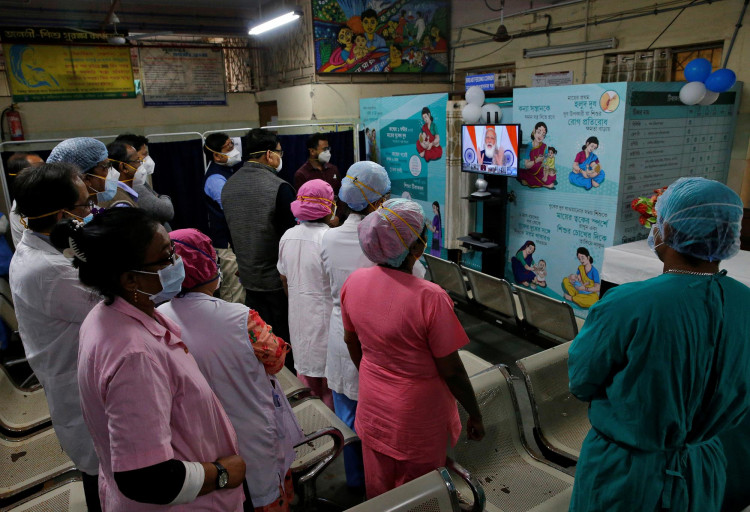India scientists have discovered a rare double mutation of SARS-CoV-2, the virus that causes COVID-19, which might be more infectious than the troublesome B.1.1.7 variant now engulfing Europe and the United States.
The Ministry of Health and Family Welfare said the new variant has two mutations in the spike protein which the virus uses to fasten itself to human cells.
It said the variant was discovered in up to 20% of the samples sequenced from Maharashtra state, the worst hit by the recent surge. Maharashtra accounts for more than 60% of all the 368,000 active cases in India.
Maharashtra is the most industrialized state in India. It's capital, Mumbai is India's financial and commercial hub.
In Nagpur city in Maharashtra, infections caused by this new variant are in those parts of the city least affected thus far, said Dr. Sujeet Singh, chief of the National Center for Disease Control in New Delhi.
"The susceptible pool of population...was substantially large," noted Singh.
Dr. Rakesh Mishra, director of the Center for Cellular and Molecular Biology, said the genetic tweaks in the double mutation are of concern since they might help the virus spread more easily and evade the immune system.
The spike protein is relatively large with two new mutations spaced close together on it. One of the mutations is similar to the South African variant.
Mishra, however, cautioned against linking the new variant to the surge currently gripping India. On Wednesday, the health ministry reported 47,262 new cases, bringing the country's total case number to 11.7 million.
It also reported 274 deaths Wednesday to take the overall death toll to 160,441. Both the number of new cases and deaths over the past 24 hours were the highest thus far this year. The health ministry said the number of daily active cases has been trending upward over the past few days even as another wave looks likely to swamp the country.
Dr. Rod Russell, a professor of virology and immunology at Memorial University of Newfoundland's faculty of medicine in St. John's, isn't convinced the double mutation will make current vaccines useless.
"You'll always have a broad immune response against a protein," said Russell.
"So even if a certain variant of concern pops up, it's not going to completely knock out the effects of the vaccine."






